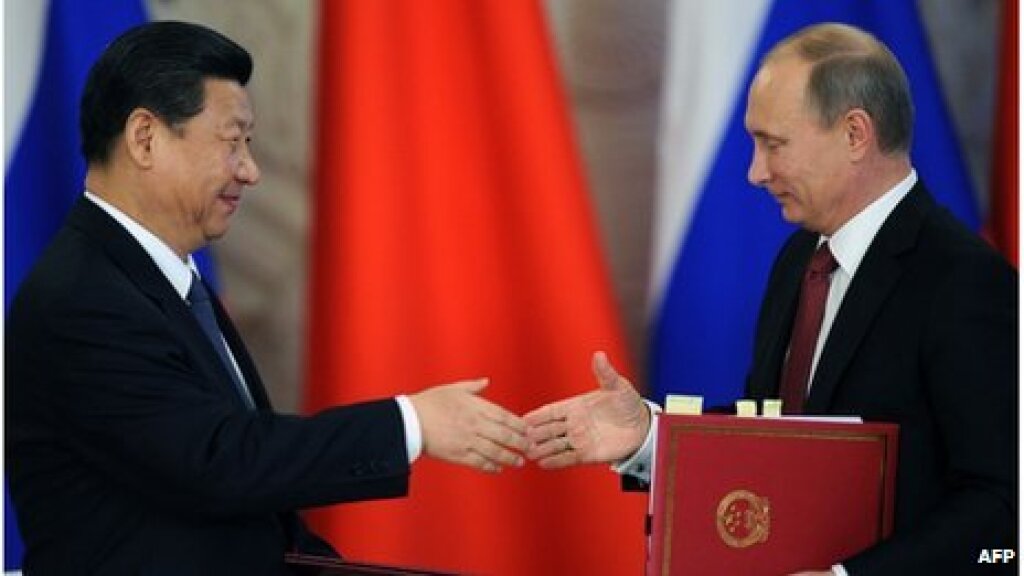The Jordan Center stands with all the people of Ukraine, Russia, and the rest of the world who oppose the Russian invasion of Ukraine. See our statement here.
Above: Men at a Crimean recruiting station.
Mariia Shynkarenko is a PhD Candidate in the Politics Department at The New School for Social Research.
For the Crimean Tatars, an indigenous people that has lived under Russian occupation for almost eight years, Putin’s announcement of mobilization was the worst possible news. The very next day, majority-Tatar villages were raided by police, with many men receiving draft notices. According to some estimates, 80% of notices in Crimea are being handed to Crimean Tatars, though they constitute only 13% of the population. Even if this number is hard to verify, the past seven months have shown that Russia habitually mobilizes ethnic minorities for its war against Ukraine.
What does mobilization mean for Crimean Tatars, and how might their involvement change the course of the war?
Whereas indigenous people sent to war from Russia’s Far East are relatively unfamiliar with Ukraine, Crimean Tatars consider the nation their main ally. In fact, the vast majority of Crimean Tatars identify as Ukrainians. In 2014, Tatars residing in Crimea formed a cohesive and organized pro-Ukrainian force, organizing patrol units to protect their neighborhoods as well as rallies in support of Ukraine’s territorial integrity. For them, Russia is a colonizer and occupier, and mobilization is seen as just another tool to erase and annihilate them.
Ukraine recognizes Crimean Tatars as allies and considers them Ukrainian citizens, as it does all residents of the peninsula. The Office of the President and other institutions and NGOs have already published recommendations on how to avoid getting drafted into the army, how to sabotage orders, and how to become a POW in order to save lives.
At the same time, Crimean Tatars have lived under Russian occupation for the better part of a decade, meaning they were completely cut off from the Ukrainian legal system as well as broadcasting and communication. Russian propaganda and oppression have been part of their daily life during this period. Is it possible that Russia will successfully exploit this artificially created distance between Crimean Tatars and the Ukrainian state?
My own hypothesis is that Putin’s decision will backfire, as has occurred many times before. Just as he completely misunderstood Ukraine, he has underestimated Crimean Tatars. Even in Ukraine itself, despite the influx of Crimean Tatars since the 2014 annexation, few people really grasp what they are capable of.
Since 2014, Crimea has been perceived as an information “black hole” that neither receives nor emits much news. Many observers even suspected that Crimean Tatars quietly accommodated or acquiesced to the Russian occupation. With few stories of active protest or demonstrations, many assumed that there was no resistance.
Yet since the early twentieth century, Crimean Tatars have repeatedly shown their political potential. Despite suffering deportations and life among hostile neighbors, lacking resources and support, they managed to survive and preserve their national identity. Since the 2014 annexation, Crimean Tatars have continued to resist Russification, discrimination, and repressions with acts and behaviors that, admittedly, are not usually conceptualized as “resistance.”
Consider the very decision to remain in Crimea. The question of staying or leaving was hotly debated within the community in the aftermath of 2014. For some, it was life-threatening to remain on the peninsula in light of arbitrary violence and arrests. On the other hand, the strong attachment to the land that had first developed following Stalin's deportation of Crimean Tatars to Central Asia in 1944, and was further cultivated during the extraordinary hardships endured by the generation that returned in the 1990s, motivated many Tatars to stay in Crimea despite the occupation.
Remaining in Crimea involved many sacrifices and trade-offs. First and foremost, it meant giving up the most basic sense of individual safety and liberty as Crimea became increasingly authoritarian, with Russian authorities ramping up tactics of “hybrid deportation” to force Tatars to leave. Second, remaining in Crimea meant giving up personal ambitions as Crimea became an isolated “grey zone” with few economic or social prospects. Finally, those who stayed found themselves required to obtain Russian passports, which complicated travel and international recognition while essentially recognizing the legitimacy of Russia's claim to the peninsula.
This context of personal sacrifice, oppression, and defiance of the wishes of Russian authorities, who would be happy to see Crimean Tatars gone, makes clear their willingness to defend their right to live in their homeland. Together, their decisions amount not to accommodation or acquiescence, but to resistance.
Another type of behavior that is sometimes interpreted as accommodation, but should more properly be seen as resistance, is humor, laughter, and celebration. Crimean Tatars in Crimea understand very well the purpose of arbitrary violence and arrests—to instill fear and terror. To subvert the state’s intentions, they choose to express a defiant kind of public happiness. Indeed, since the annexation, the Crimean Tatars have mastered the art of parallel reality, in which they shoot comedy shows and fairy tales and organize book fairs and festivals, education projects, and talent shows. These acts are, of course, constantly challenged by the authorities, who try to disrupt events by prohibiting venue owners from hosting them or organizing illegal searches. While some may read Crimean Tatars' exuberant creative expression and festivities as signs of resignation, the incensed reaction of the occupying authorities shows that these cultural initiatives are, in fact, seen as threats to the regime—meaning that continued to pursue them constitutes resistance.
This post examines just two examples of subtle resistance, but there are many more. Given their creativity in defying Russian occupiers over the past eight years, it seems unlikely that the Crimean Tatars will quietly accept the Putin regime's latest outrage.



